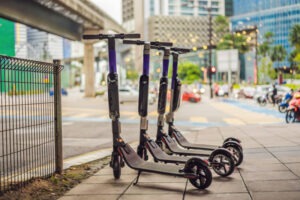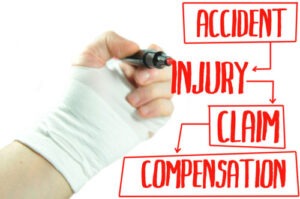
Michael Beckman, Elder Abuse Attorney
After her husband suffered a fall within his first week at a nursing home, a Sarasota resident took to the internet to find a new place that could keep him safe. Her search led her to the Medicare website, which provides information on 16,000 nursing homes across the nation, including a star-rating system in which five stars equals the highest quality of care provided based on health inspection reports and the average hours that professional staff spend with each resident each day.
The information allowed the woman to learn more about the most highly rated facilities in her area and led her to choose a facility where she feels her husband will receive better care.
All across the country, a focus has been turned on the care that the most vulnerable adults in the U.S. receive. Nursing homes are a major player in the provision of elder care and what they do to protect their residents can mean the difference between life and death. If your loved one has suffered abuse or neglect at the hands of nursing home staff, an experienced nursing home injury lawyer can help you understand the process of filing a legal claim against the facility.
What Is Elder Abuse?
What is elder abuse? Elder abuse is defined as physical, emotional, or sexual harm inflicted on an elderly adult, financial exploitation or a failure to protect an elderly adult by neglecting their welfare. Some types of elder abuse include:
- Physical abuse, such as hitting, shoving, slapping, restraining, or confining the elderly adult.
- Emotional abuse, such as screaming at the elderly adult, threats or intimidation, ignoring the elderly adult or isolating them from family or friends, habitual blaming or scapegoating, or menacing the elderly person.
- Sexual abuse, including forcing the elderly adult to perform sexual acts, undress, watch pornography, or watch others involved in sexual acts.
- Elder neglect, which is failing to care for the elderly adult’s needs. Neglect accounts for more than half of all elder abuse cases and includes failure to provide the elderly adult with appropriate nutrition, failure to protect the elderly adult from wandering away from the home or facility, and failure to prevent falls. Fall prevention is an important aspect of elder care as more than 15,000 people over the age of 65 die as a result of falling each year, and the incidence of falls goes up with each decade of life a person has lived.
- Financial exploitation, which is described as unauthorized use of a person’s funds or property that may be perpetrated by a caretaker or a scam artist who does not know the elderly person.
- Healthcare fraud, which often relates to collecting insurance money for services that were not received, or overcharging for services.
Expect More, Receive More: Legal Support That Feels Like Family
Why Does Elder Abuse Happen?
As explained by the National Center on Elder Abuse, the abuse or neglect of an elderly individual occurs due to social isolation, lack of access to support and resources, and physical, mental, or emotional dependence. Elder abuse can happen in a home environment under the care of an overwhelmed family member or other caretaker, or it may exist in nursing facilities where under-staffing, improper training, or the failure to safeguard elders from unscrupulous employees through thorough background checks may create the problem. The mental, emotional, and physical needs of the elder may place them at a greater risk of being abused, including issues such as:
- Dementia or cognitive impairment that renders the elder unable to explain what is happening to them.
- A burned out caregiver who needs a break from their responsibilities for the elder.
- Financial circumstances that may result in a family member or caretaker being tempted to improperly access the elderly adult’s finances. A common cause of elder financial exploitation is a family member with a substance abuse problem who needs money to supply their addiction.
- A physically frail elder who is no longer able to care for their own physical well-being or who is at risk for issues such as falling if not properly supervised.
- A caretaker’s feelings of social isolation due to being in the presence of a physically frail elderly adult much of the time without other social interactions, particularly if the caretaker is caring for a family member at home.
- Living situations in either a home environment or a nursing facility in which a caretaker or another person may exert power over the weaker elderly adult for personal satisfaction or gain.
Rights Given to Nursing Home Residents
Federal law provides certain rights to nursing home residents, which include:
- The right to a dignified existence in which they are treated with respect and are free from abuse, neglect, exploitation, and misappropriation of property.
- The right to a homelike environment and use of personal items when possible.
- The right to reasonable accommodation of needs and preferences.
- The right to participate in the development of their own care plan.
- The right to equal access to quality care.
- The right to organize and participate in resident or family groups.
- The right to refuse care or treatment.
- The right to be fully informed about the type of care they are receiving, as well as the risks and benefits of that care.
- The right to be informed of the facility’s rules and regulations, as well as any changes to their care plan.
- The right to file a grievance without fear of discrimination or retaliation.
- The right to have or refuse visitors at any time.
- The right to information about services and the costs of each available service.
- The right to assistance if sensory impairments exist.
- The right to participate in social, religious, or community activities.
- The right to privacy regarding personal, medical, or financial affairs.
- The right to private and unrestricted communication with any person of their choice.
- The right to appeal a proposed transfer or discharge.
- The right to return to the facility after hospitalization or therapeutic leave.
Nursing homes are subjected to annual state inspections in which inspectors check to ensure that the rights of residents are protected by reviewing complaints, viewing patient records, and interviewing staff. Fire, emergency preparedness, and safety inspections in all areas of the facility, including bathrooms and kitchen facilities, are also undertaken. Facilities found to be violating their residents’ rights or compromising their safety may be subject to civil penalties including withheld Medicare payments.
Signs of Nursing Home Abuse or Neglect
According to the Florida Department of Children and Families, the following are signs of elder abuse:
Unexplained bruises or welts (also known as bed sores) which often feature the shape of whatever instrument was used to perpetrate the abuse, such as an electrical cord or a belt buckle. These injuries may occur on any part of the body and there may be multiple injuries in various stages of healing.
- Unexplained fractures, which often are found on the face, including the nose or cheeks.
- Unexplained burns, which may appear to have come from a cigar, cigarette, or a patterned object or may be due to immersion in hot water, appearing sock-like, glove-like, or as doughnut-shaped burns on the buttocks.
- Unexplained lacerations to the lips, gums, eyes, or genitalia.
- Difficulty walking or sitting, or unexplained bleeding or bruising of the exterior genital area.
- Severe or constant pain.
- Obvious illnesses that require medical or dental attention.
- Emaciated appearance.
- Unusual lumps or protrusions under the skin.
- Hair that is thin or pulled out in areas.
- Lack of appropriate clothing for the weather, dirty clothing, or the appearance of being unbathed.
Other signs of abuse or neglect may include:
- Sudden changes in the elderly adult’s mood or behavior, including being angry, agitated, or withdrawn.
- Unwillingness of caregiver to allow the elderly adult to be alone with others.
- A report of an overdose or apparent failure to take medication as prescribed.
- Broken bones, strains, or dislocations.
- A caregiver who is threatening, belittling, or controlling the elderly adult.
- Broken eyeglasses or frames.
- Untreated injuries, such as bed sores.
- Unsanitary living conditions such as dirt, bugs, or soiled bedding.
- Unsafe living conditions, including faulty electrical wiring or other fire hazards.
- Desertion of the elderly adult in a public place.
- Sudden changes in the elderly adult’s financial condition, or unexplained withdrawals from their accounts.
- Names added to the elderly adult’s bank card.
- Duplicate billing for medical services.
- Inadequate caregiver responses regarding questions about the elder’s care.
Preventing Elder Abuse
Approximately 10 percent of the elderly population in the U.S. experiences some form of physical, emotional, sexual, or financial abuse or physical neglect. While it is impossible to control every situation in your elderly adult loved one’s life, there are some things you can do to prevent them from experiencing elder abuse, including:
- Search and compare nursing homes in your area through the information provided by Medicare. Notice that nursing home information pages featuring a red hand icon denote facilities that have been subject to a substantiated allegation of abuse or neglect.
- Stay in close contact with your elderly adult. Not only does the interaction with you keep them from feeling isolated, but it also allows you to notice changes in the elderly person’s appearance or behavior that may indicate the presence of abuse or neglect.
- Make sure that your elderly adult is well connected to medical services, particularly if they are prone to self-neglect, such as refusing to eat, drink, or take medication. Be sure your elderly adult’s doctor knows about these self-neglect behaviors.
- Don’t allow a caregiver to add their name to your elderly adult’s financial accounts, as this is a red flag for the potential of financial exploitation.
- Beware of sudden changes in behavior or mood, and look for other signs of abuse or neglect, including physical injury.
- Nursing facilities are required to provide a safe environment for your elder adult. Falls in nursing homes are usually not accidents, but rather a sign of under-staffed facilities or improper training.
What to Do If You Suspect Elder Abuse
If you suspect that an elderly adult is being abused or neglected, either in a home environment or in a nursing facility, here are some tips as to what to do:
- If the elder person has sustained injuries or is in immediate danger, call 911 right away.
- If you suspect elder abuse, you can make a report with the Department of Children and Families, which will then conduct an investigation and involve law enforcement authorities as needed, as well as offering resources such as caretaker support groups or listings of individuals who provide respite care.
- Suspected abuse in a nursing home facility should be reported not only to the director of the facility, but also to the Long Term Care Ombudsman in your region.
Help With Expenses That Elder Abuse Creates
Elder abuse, particularly that which occurs in a nursing home setting, can result in injuries and impacts to the elderly adult’s quality of life, or can even result in the wrongful death of the elder. If your loved one experienced abuse at the hands of nursing facility staff or others involved in their care, a lawyer who is experienced in personal injury and wrongful death nursing home abuse cases can tell you about the process involved in filing a lawsuit against the facility and other liable parties.
You may be eligible to pursue compensation for expenses such as medical costs, pain and suffering, and loss of enjoyment of life in personal injury cases. In cases where the elderly adult has died due to abuse or neglect, the elderly adult’s family may be able to seek damages such as funeral and burial expenses, loss of companionship, or loss of parental guidance.
Fort Myers, FL 33919

 Unexplained bruises or welts (also known as bed sores) which often feature the shape of whatever instrument was used to perpetrate the abuse, such as an electrical cord or a belt buckle. These injuries may occur on any part of the body and there may be multiple injuries in various stages of healing.
Unexplained bruises or welts (also known as bed sores) which often feature the shape of whatever instrument was used to perpetrate the abuse, such as an electrical cord or a belt buckle. These injuries may occur on any part of the body and there may be multiple injuries in various stages of healing.




